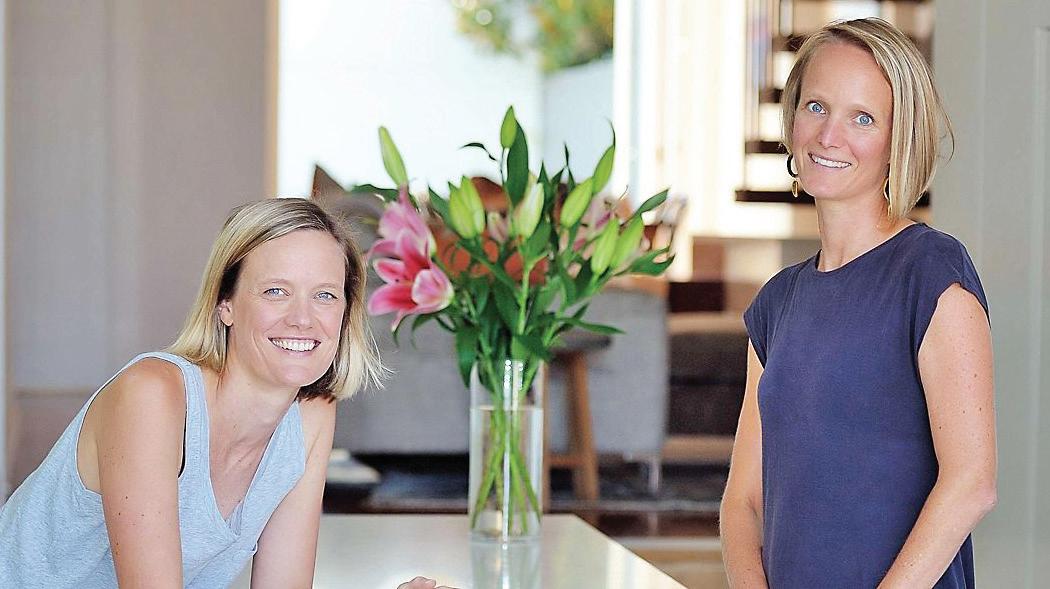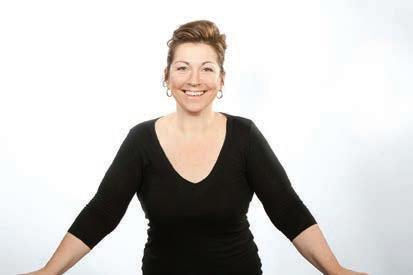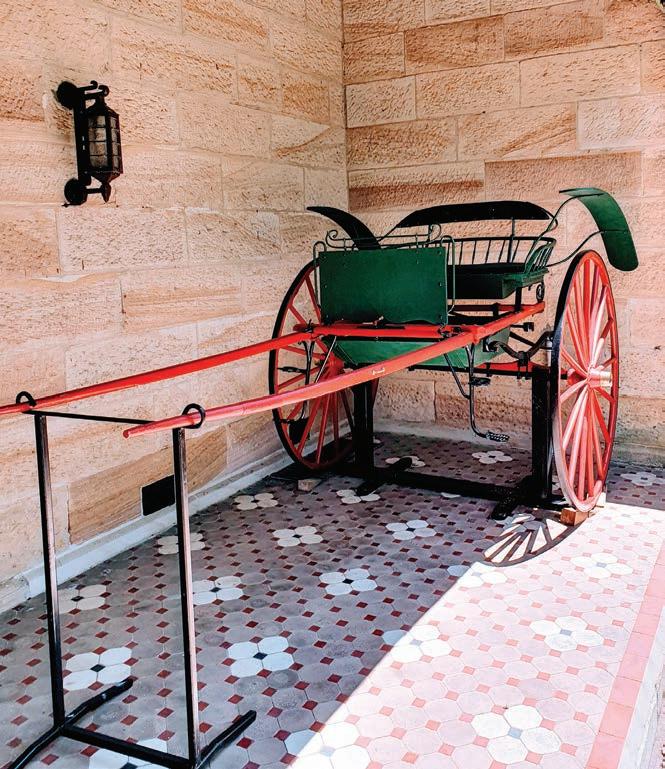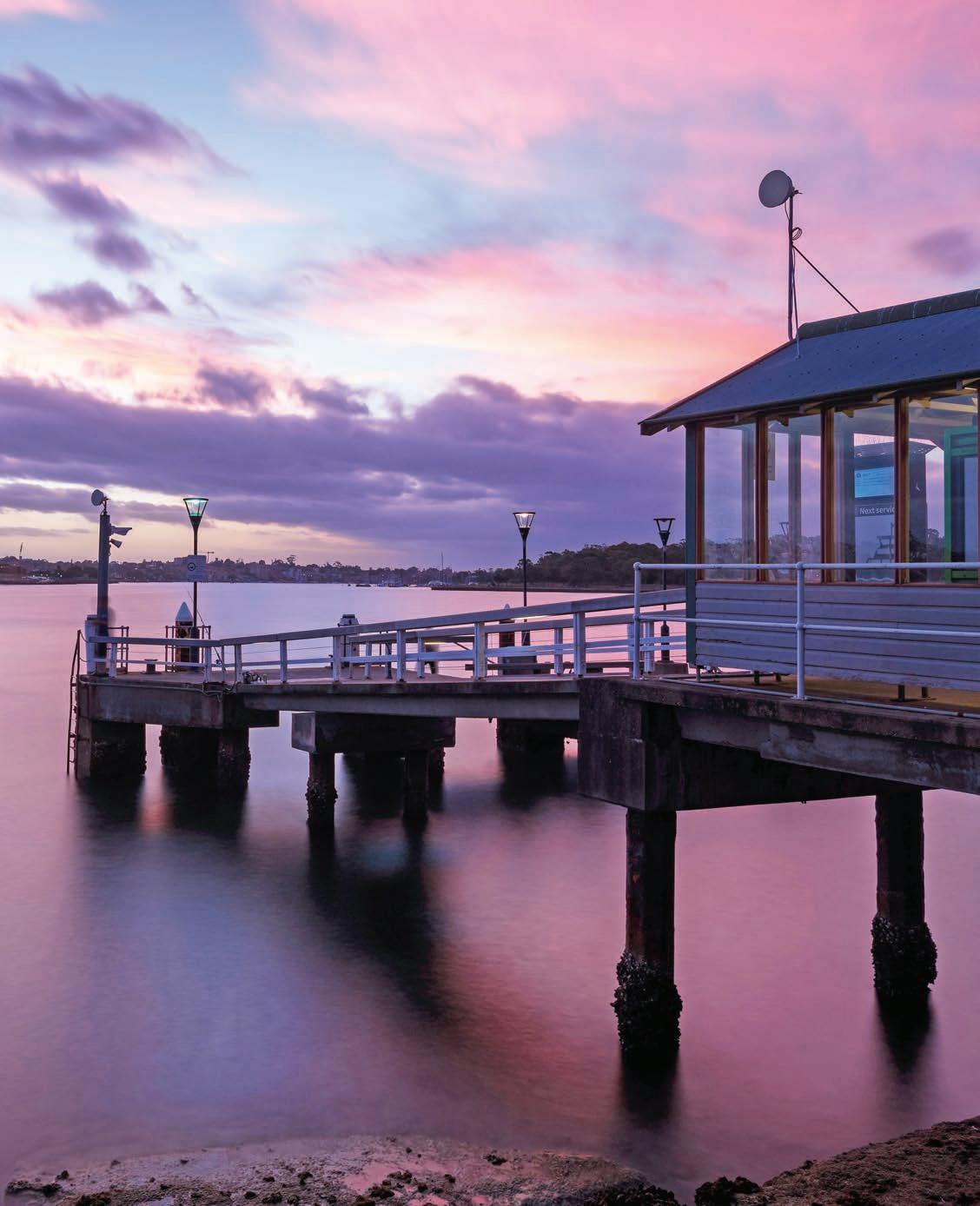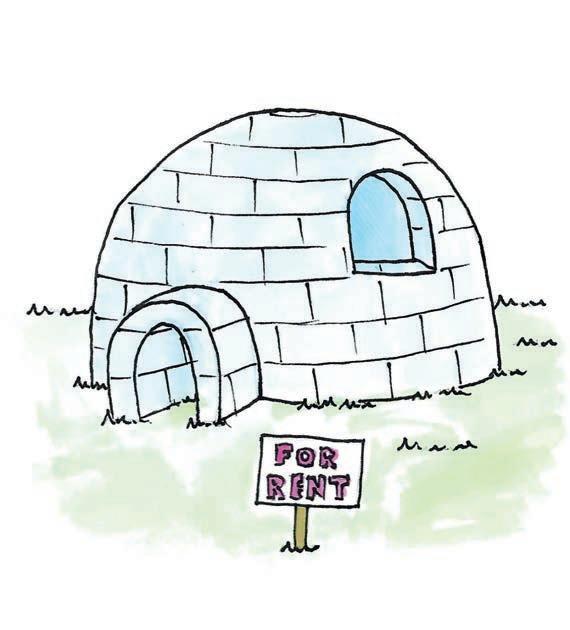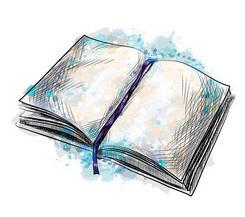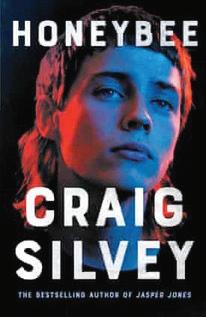
9 minute read
Interview - Kay Leiper
Kay is the former President of the Lane Cove Historical Society. She has enjoyed a varied life that has seen her work in TV, become a scriptwriter, then later specialise in ancient history and literature as an academic - all the while raising her daughter. You may well see her at the Carisbrook House open days where her love of history comes to life.
Tell us about your background… I grew up in a typical middle-class Sydney family. The house was the usual suburban Californian bungalow with a dining room that was hardly ever used and a ‘lounge room’ that sported a Westminster clock on the mantel and loose covers on the sofas in summer that were a riot of red roses on an ivory background. We ate in the breakfast room where a coke-burning ‘Cosy’ fire kept us warm in the winter. Growing up, did you have a fascination with history and literature? Every child loves being read to at bedtime. My father used to read from a collection called the Twins Series by Lucy Fitch Perkins. Right through the 1950s most of my books were adventure stories. I remember reading about Christopher Columbus and sailing ships and long voyages. First job out of school? I was a Secretary’s secretary. Typing, shorthand, short dresses and long tresses - think Dusty Springfield, Twiggy or Audrey Hepburn. Countless millions of us all over the world, all wishing we could be as thin, pretty or talented as those three.
Advertisement
You worked in TV. How did that come about? It started as a temporary job working for Rowan Ayers, who was first brought to Australia to be executive producer of the 1976 Montreal Olympics coverage on Channel Nine. Kerry Packer always went for the best, and this icon of the BBC was the most competent and calm boss of the chaos that was Australia’s first 24-hour coverage of anything. Rowan taught me that panicking is no solution. Within 12 months I was working in the Promotions Department before becoming a Director’s Assistant. It was a good all-round training in scriptwriting, editing, and production. You were a working Mum in the early 1980s. How did you make it work? In 1985, when my daughter was around 12 months old, I started working from home, writing the promo scripts that used to go over the credits of TV programmes. As soon as she was put down for her morning nap, I would dash to my IBM typewriter and check out what scripts were required to go to air the next day. There were usually about 20 scripts to be written – 15 or 20 seconds of cliche-ridden assonance, alliteration, and absolute rubbish about how exciting next Tuesday at 8.30pm might be. The more I did it, the quicker I got. At one point I did a stint full-time back at my old job, something that required putting baby into a day childcare centre. This brought the wrath down from both my motherin-law and my mother. How could I do such a terrible thing to my child! How times have changed. The next time I worked was in a university television centre in New Zealand. Three, sometimes four days a week with a very lovely nanny at home, vacuuming the carpets and miraculously getting the child to pick up all the Lego. Those were the days. You embarked on a Bachelor of Arts and a PhD later in life… Yes, I began a BA in New Zealand and finished it at the University of New England in the mid-90s. I began the PhD in the mid-2000s. There is nothing like being a ‘mature-aged student’. I was at a lost, loose-end being a housewife in New Zealand and a visiting friend suggested that I should do some study. Another friend had once shamed me because I did not know who Oedipus was. Friends are dangerous, are they not? The two thoughts coalesced, and I thought I would
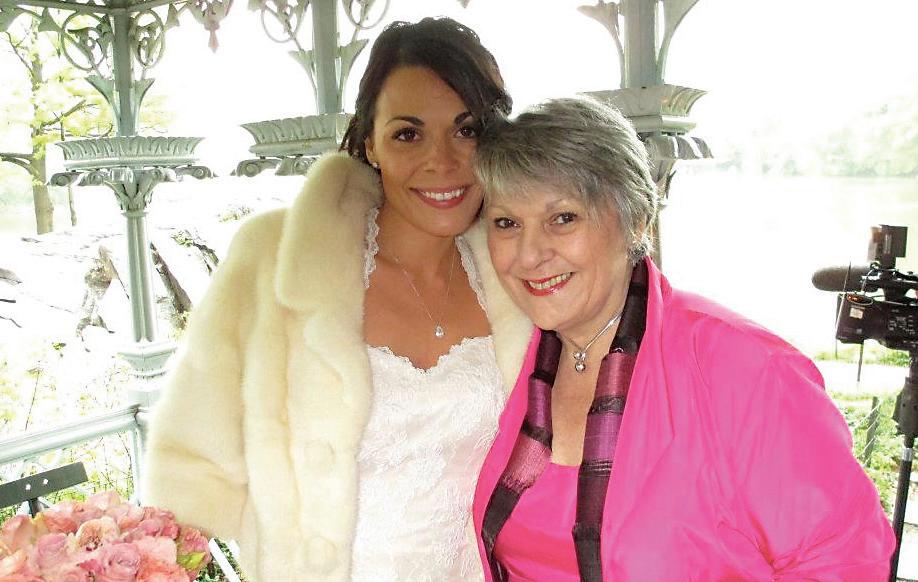
enrol in the Ancient History department of the BA which included Egyptian, Mesopotamian, Greek and Roman history, ancient languages, and ancient literature. I focussed on Greek history for my Honours thesis. The aim of my PhD thesis was to understand how problemsolving is significantly influenced by literacy or the lack of it. It drew together research from the cognitive sciences, neurosciences and linguistics overlaid on the history of Athens in the fifth century BC. This period in Athens was the first recorded incidence of a society teaching reading and writing to its citizens and then asking them to take part in a democracy. It is a useful historical example that can be applied to educational and political strategies today. You have just stepped down from your role as president of LCHS - tell us what you consider your best achievements… Our aim has always been to inspire the local community to become more interested in history. Members of the LCHS, the committee and the Friends of Carisbrook all pull together in that endeavour because we think it is important. We take pride in our curatorship of Carisbrook and a great deal of energy goes into fundraising. Putting the monthly Open Weekend scheme into action has been a challenging exercise. The Covid-19 pandemic required us to develop a completely new (and safe) way of offering the visitor a meaningful tour of the house. Now, instead of guides talking you through the house, a self-guided audio tour and video is offered on an iPad, and because we now offer Devonshire teas and coffee and cake, those experienced guides now play receptionists and kiosk attendants. It is a mark of the love these volunteers have for this old house that they are all happy to lend a hand wherever is needed. What we want is for the locals to regard the place as a relaxation zone, where you can get away from a busy Saturday morning, or relax into Sunday afternoon. Despite stepping down, you are still involved - what projects are you focused on now? I’ll continue to do the cooking for the Carisbrook Open Weekends (until someone else takes over). I hope to start on some of the little jobs to the interiors that we’ve been putting off. It is good fun. Research first, white cotton gloves and then you are ready to play with artefacts in an historic house. I’ll also continue to work on the digital tours and hopefully complete the garden tour that’s in the planning stage. I would like to develop some sort of virtual tour of the early days of Linley Point and Burns Bay. And how else are you occupying your time? Waiting for God. Or perhaps, to quote Waleed Ali, waiting to disappear in a puff of irrelevance.
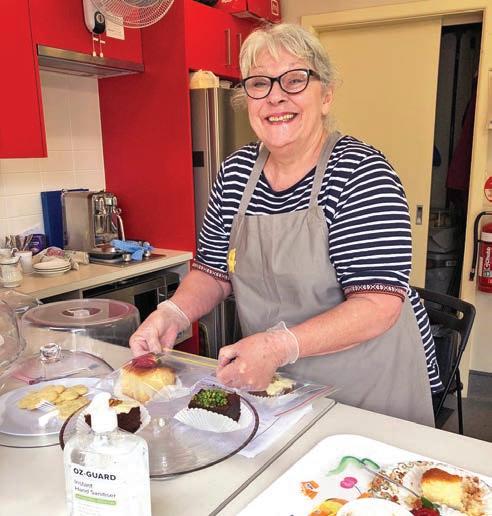
Groundhog Day
Oh dear, another lockdown for Victoria and the ripples of ramifications spread nationwide. NSW remains open and while we can rest assured that Gladys will never close the borders to returning citizens, none of us wishes to be barred from travelling further afield by being in the wrong place at the wrong time, by chance. By Adrienne Witteman.
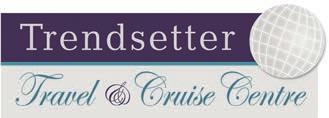
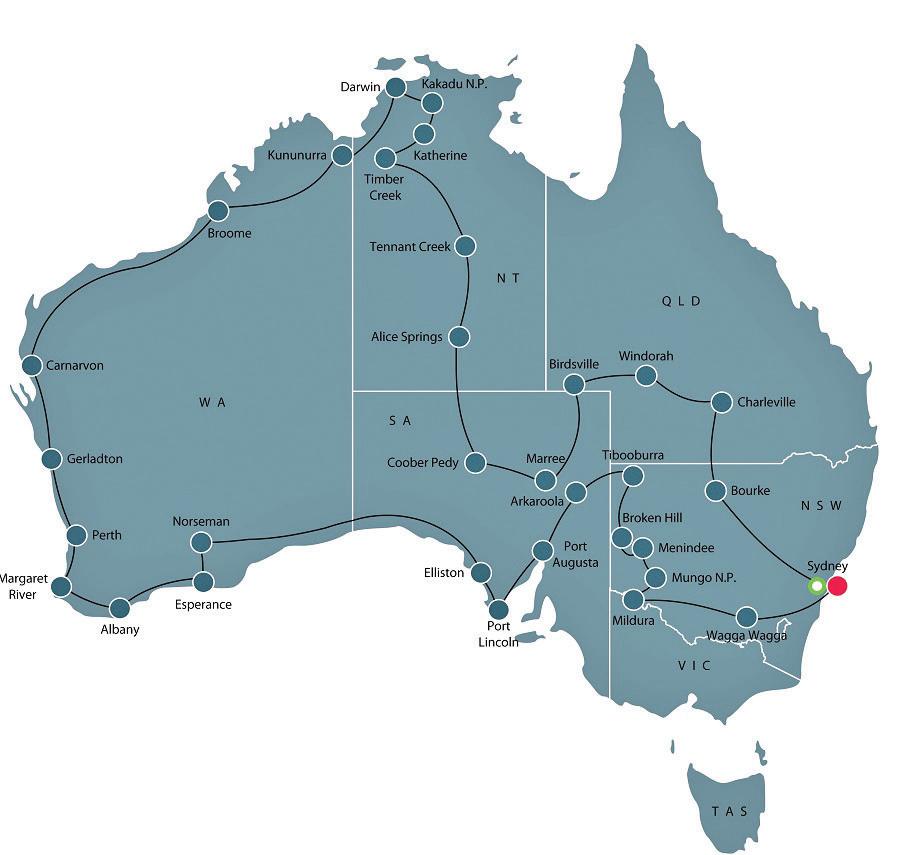
We’re all mightily fed up. And confidence levels keep getting chipped away. Australia has done really well in the Covid stakes, and so should it be. Yet it seems like too often we are perpetually moving two steps forward, one step back. Here at Trendsetter, we have plenty of travel planned and sold for the next three months and part of my role is keeping people motivated to believe it will happen. In conjunction with local artiste extraordinaire Pamela Fairburn, the Paint the Fleurieu Peninsula Art Tour will happen in March. Then in April and May, I’m scheduled to escort golf tours to Perth and Hamilton Island. All three tours have already been rescheduled from 2020 and I most definitely don’t want to do that a third time. The cruise industry too is looking for more certainty. Our spirits were buoyed this week by a declaration from the federal tourism minister Mr Tehan that people should feel confident to book cruises. We know the naysayers will refuse to believe that cruise ships are other than germ factories, despite irrefutable evidence about what has been done to significantly improve operating protocols. That Coral Expeditions continues to operate safely in Australia, and several cruiselines are doing similar in Europe and the USA, speaks volumes about the safety of cruising going forward. So we live in real hope that all of the Kimberley cruises we have booked for April – September will operate. Our clients are desperate to get onboard. We are desperate for some return to normality. Of course, during the last year we’ve all learnt to live closer to home and by now you will all be familiar with the Holiday Here This Year campaign. Instead of booking the Mara plains of Africa, we’re now booking the outback plains of NSW. And instead of booking small group journeys through Europe, we’re booking the same at home. Instead of booking treks around Mont Blanc, we’re getting enquiries about the Bay of Fires, Scenic Rim, or Arkaba Wilderness walks. Cultural touring within Australia is enjoying a renaissance. Who knew we had so much to celebrate and salivate over in our own backyard? Music Festivals and Opera events. Art Tours inclusive of private homes and collections countrywide or to regional galleries. Garden tours of NSW, Victoria and South Australia, many of them famously private properties. Food and Wine tours. Architecture tours. There is an almost endless list. I know many of us dream of one day doing the big trip around Australia. Cruising will again be possible but the pièce de résistance for me this week was the announcement of a 65-day, small luxury coach touring around and through Australia. 20 people maximum, and the opportunity to explore indepth the contrasting landscapes of this great continent. No need to drive yourself and with all the hard work done, what isn’t there to like about this fantastic opportunity? Certainly there’s demand as the August departure is already guaranteed. Covid has left no-one untouched, and my industry severely debilitated. However, one silver lining for me has been becoming a part of the rebirth of domestic Australian tourism. We are so lucky that we can continue to travel. Let’s make the most of it, get out there and see for yourself. The Trendsetter team stands ready to help you Holiday (Well) Here This Year.
Please note that we are currently open reduced hours. Please email or call prior to visiting our store.
3 Northwood Road, Longueville 9428 5900


